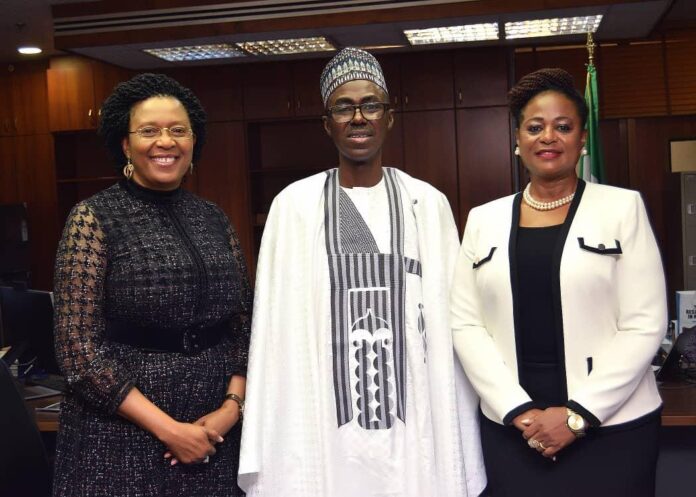The Managing Director/CEO, Nigeria Deposit Insurance Corporation (NDIC), Bello Hassan has explained the reasons why Nigerian financial institutions have remained safe and resilient despite the challenges posed by the Covid-19 pandemic in global financial system.
Speaking during a retreat for Senate Committee on Banking and Other Financial Institutions in Lagos, at the weekend, he said the resilience and stability of Nigerian banks was due largely to the proactive policies and support of the regulatory authorities.
He disclosed that a resilient financial system has the capacity to respond to a range of shocks.
Hassan, who spoke on the theme: “Deposit Insurance in Nigeria: Re-strategizing for Tomorrow”, said the macroeconomic shock and stress brought about by Covid-19 was unprecedented, and recognised as the ultimate test of resilience so far to financial systems.
He said the NDIC’s contributions to financial stability and resilience can be examined within the context of its activities in the discharge of its mandate of deposit guarantee, bank supervision, distress resolution, and bank liquidation.
Hassan said the corporation encouraged prudent risk management practices in the insured institutions because effective risk management remains central to safe and sound banking system.
“The promotion of financial sector resilience and stability, hitherto the sole responsibility of the Central Bank of Nigeria (CBN) was reinforced when the Deposit Insurance Scheme (DIS), implemented by the NDIC, was introduced to provide a further layer of protection to depositors and complement the CBN’s supervisory role,” he said.
The CBN, he added, supported by the NDIC, continue to strengthen the stability of the financial system and build a resilient financial system through robust policies, supervision and other functions within the banking sector.
“The NDIC also contributes to the financial system stability in its role as a key participant in the financial safety-net; and enhances public confidence and systemic stability by providing a framework for the resolution and orderly exit mechanism for failing and failed insured institutions,” he said.
According to him, the sustainable growth of any economy whether developing or developed would largely depend on the resilience and stability of its financial sector.
“As you are aware, financial stability is about resilience of financial system to stress, macroeconomic shocks, or problems at a specific institution or market, from disrupting the broader financial system. Maintenance of financial resilience therefore, requires preparation in advance, through diligent planning, laws, robust policies and sound institutions to implement the laws and policies,” he said.
He said the Differential Premium Assessment System (DPAS) has been migrated from the flat-rate method of assessing and collecting premium to the risk profile of individual banks.
Also, with the support of the CBN, the regulators have moved from compliance-based examination to Risk Based Supervision (RBS) in the banking sector.
“It is also instructive to indicate that the NDIC is keenly involved in ensuring adherence to corporate governance principles in the banks. The target ratio was also developed to ensure operational readiness in deposit insurance guarantee, while deposit insurance cover has been reviewed upward overtime in response to changing deposit distributions in the banks,” he said.
He said innovations and threats to existing models of business, regulation and supervision are manifesting in its operations.
“Regulators in financial systems across the globe are also brainstorming on fresh ideas to ensure that the financial system remains resilient, sound and stable so as to continue to play its supportive role in the economy.”
“We are also active on the global scene, and have therefore embarked on robust collaboration and cooperation with other deposit insurance agencies and global bodies, particularly in the area of knowledge and information sharing. The aim of these efforts is to effectively address the technological, legal, regulatory, and supervisory challenges facing the deposit insurance system,” he said.
Also speaking, Chairman, Senate Committee on Banking, Insurance & Others Financial Institutions, Uba Sanni, called on all stakeholders to embrace the changing dynamics and evolution in the banking and financial sectors largely occasioned by rapid technological innovations and how best to effectively guarantee the safety of deposits in insured institutions for prosperous growth and development of our economy at this critical period in tandem with global financial trends and realities.



